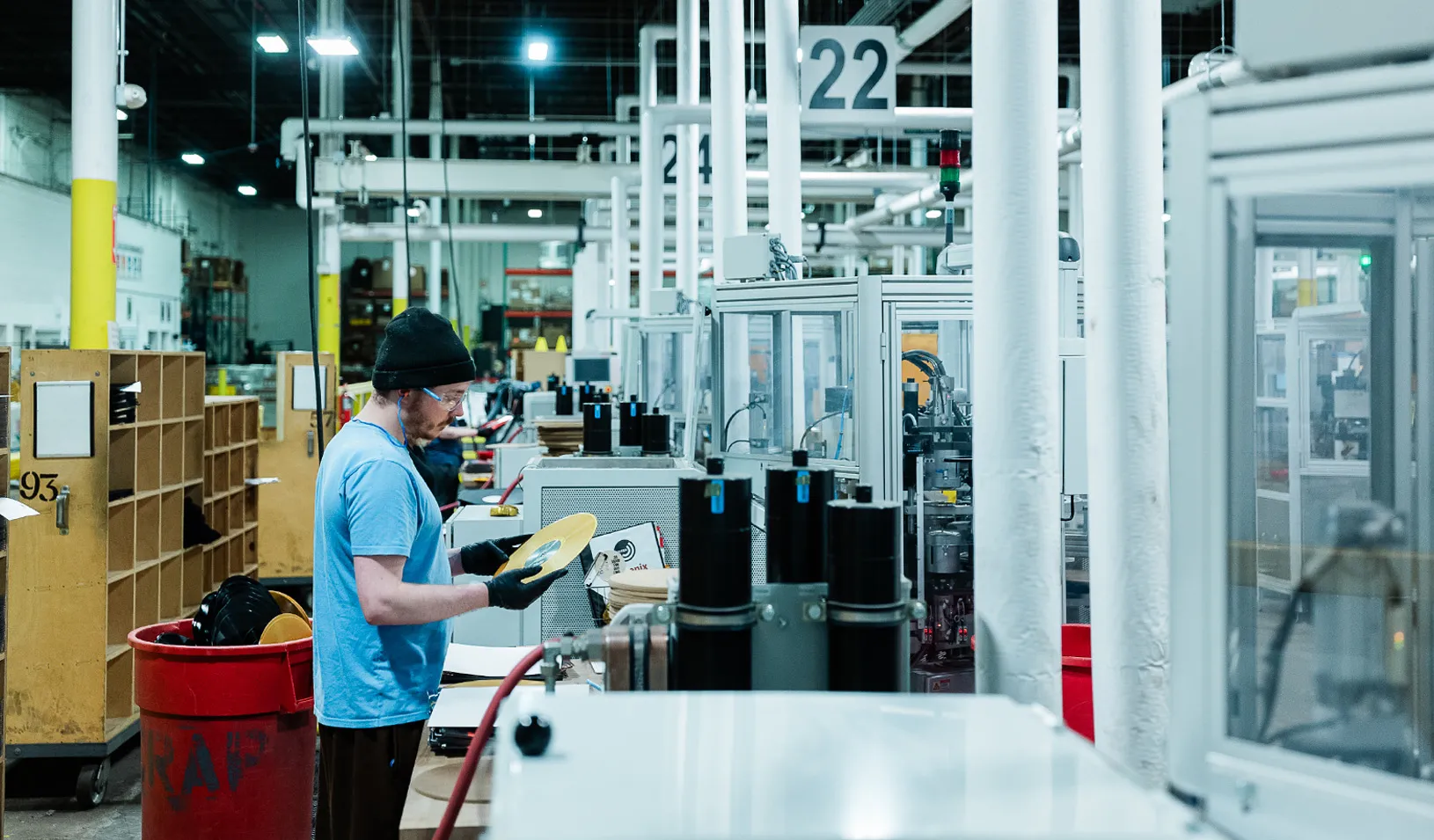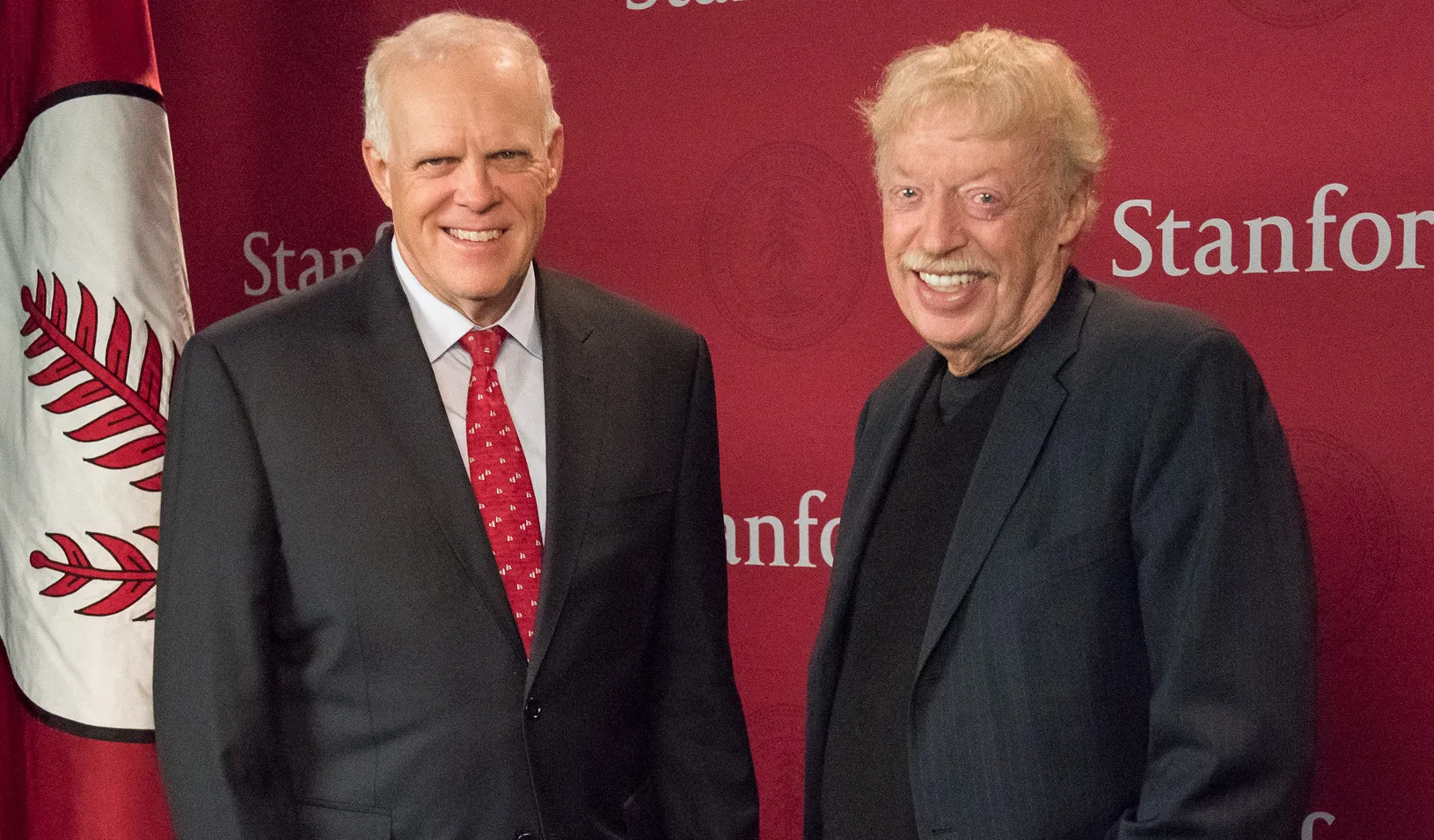William Eaton, MBA ’75: “My Art Form Starts with Trees”
Four decades ago, Eaton drafted a business plan that became the blueprint for the Roberto-Venn School of Luthiery. Today he still runs the place, making one-of-a-kind guitars.
February 12, 2021
William Eaton, MBA ’75, grew up playing music. It was, he says, “the soundtrack of my life.” But he came from a family of bankers, so when he arrived at Stanford GSB, he figured it was time to put his musical fantasies behind and begin training for a real a job. One night he picked up his guitar and began strumming and suddenly realized that he wanted music to be central to his life.
Soon after, he mentioned to one of his professors his dream of creating a guitar-making school. The professor asked, “When will you get the opportunity do this again?” So, while still at Stanford, Eaton wrote a business plan that became the blueprint for the Roberto-Venn School of Luthiery, which was founded in Arizona 46 years ago, and which he still runs.
Full Transcript
I think an artist and an entrepreneur, what they share is something that starts with a vision. You’re artistically creating what that business is going to be, no matter what the business is. We learn the functions of accounting, and marketing, and finance. In art, you have a different palette. And my art form starts with trees.
My name is William Eaton, and I attended the GSB beginning in 1973 and graduated in 1975.
Lutherie is the art of making and repairing stringed instruments. The art of lutherie occupies a niche. During the whole building process, you’re imagining what will this instrument sound like? If you add strings, you change the cavity sizes. Is it a solid body? Is it acoustic? That’s a wonderful evolution of what will take place.
Music was like a soundtrack to my life. When I went to college, I thought it was time to grow up. I was playing guitar primarily as something that I enjoyed, but I never considered that as a career. My entire family were bankers. My dad, my uncles. And I just thought this is, this is what I will do. And so I started researching business schools, and fell in love with Stanford. About a year went by and I just said something’s missing. So I get back up to my room, pull out my guitar, and just listen to the sound of the strings, and it really changed my whole sensibility about music and where it fit in my life at that time.
I was in a course called New Enterprise Management, and I remember at that time having a dream about making a formalized guitar making school. Becoming an entrepreneur was a difficult decision. The professors that I was consulting with were very encouraging. They would say things like, when will you have this opportunity again to do this? And that really hit home with me. I really felt somewhere deep in myself that this was something I wanted to do.
The plan was pretty ambitious. When I arrived in Phoenix, I had no resources and John Roberts, who was the proprietor, and so was Bob Venn, who was his partner at the time, John and Bob didn’t either. Many of the hardwoods used in instrument making come from tropical zones, rainforest areas. The wood we started out with, that John harvested in Nicaragua, he worked for a lumber company. So all this wood that we started the school with was basically recycled wood that had been left behind. Then those trees are milled into usable pieces that will become a musical instrument.
One of the most valuable lessons that I learned at GSB was learning to focus. Focusing on what’s really important. People ask me about achievements in music, and recording, and composing. It’s, it’s really a byline to what I started with, with creating the guitar making school. In entrepreneurial life, this is really one of the things that come later. Things that you don’t expect. I never imagined a career as a performer. But making one-of-a-kind stringed instruments, what comes from that is, for me, another career.
It forever changed my life and I’m still doing it and enjoy it thoroughly.
– Steve Goldbloom
For media inquiries, visit the Newsroom.
Explore More
Maker: United Record Pressing

Phil Knight Honored with Uncommon Citizen Award

Catherine Roberts Joins Stanford GSB as CCMO
